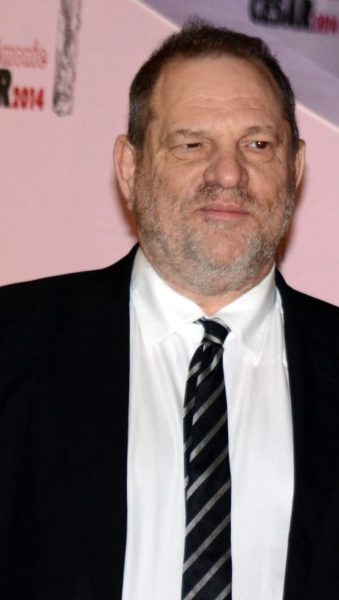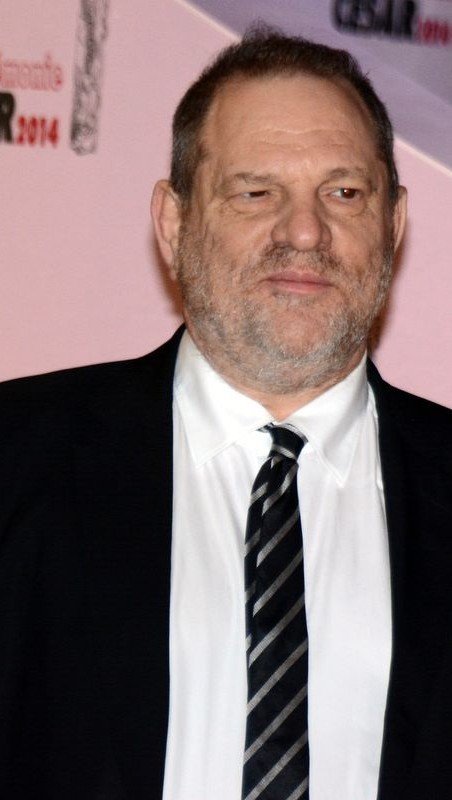
The judge in the Harvey Weinstein trial has warned the lead defense lawyer, Donna Rotunno, not to talk to the press, after she penned an opinion piece on February 15.
Writing in Newsweek, Donna Rotunno called on jurors to “do what they know is right”.
However, Donna Rotunno told Justice James Burke the piece was not intended to address the jury directly.
The row came before the jury of seven men and five women were sent away to try to reach a verdict.
The jury has now finished the deliberations for the day, after asking for clarification of legal terms and for plans of the apartment where one of the alleged assaults took place.
Hollywood producer Harvey Weinstein has pleaded not guilty to assaulting former production assistant Mimi (Miriam) Haleyi and raping former actress Jessica Mann.
The trial began in New York in January.
Accusations of misconduct against Harvey Weinstein by dozens of women helped drive the #MeToo movement.
Only two of the accusers’ cases, those of Mimi Haleyi and Jessica Mann, have led to individual criminal charges in New York, but the testimony of others is being used as supporting evidence.
Judge James Burke instructed jurors on February 18 before they retired to consider their verdict.
Harvey Weinstein Threatened with Jail for Using Phone in Court
Harvey Weinstein Reaches $25 Million Civil Settlement with Dozens of Accusers
Harvey Weinstein’s Accuser Told by Police to Delete Phone Files
As the court session opened, prosecutors asked the judge to instruct jurors to ignore the Newsweek piece as it was “100% inappropriate”.
The judge refused the prosecutors’ request, but restated a ban he imposed at the beginning of the trial on both defense and prosecution from giving media interviews.
He told Donna Rotunno: “I would caution you about the tentacles of your public relations juggernaut.”
She responded: “This is an op-ed about the jury system as a whole, about the criminal justice system as a whole.”
In the Newsweek piece, Donna Rotunno accused her opponents of trying to influence the trial.
She wrote: “The mocking of Mr. Weinstein’s walker, the unflattering courtroom-artist sketches of his body, the countless critical op-eds and biased stories, and the convenient timing of the politically-motivated charges in Los Angeles were all designed to pre-determine his guilt.”
Adding: “I implore the members of this jury to do what they know is right and was expected of them from the moment they were called upon to serve their civic duty in a court of law.”
However, Judge Burke asked the defense: “You don’t think addressing the jury in the first person isn’t problematic?”
Prosecutors have argued Harvey Weinstein was a “seasoned” predator who preyed on aspiring young actresses.
The 67-year-old’s defense team said his actions were consensual, including in one “loving” relationship. They also said prosecutors had failed to present any forensic evidence or eyewitness accounts.
Harvey Weinstein denies five charges, including rape and assault, relating to two accusers. The jury must reach unanimous verdicts on each count.
The Hollywood mogul, who never took the stand during the trial, could face life behind bars if convicted.
Once one of Hollywood’s most decorated and lauded producers, Harvey Weinstein has been accused of misconduct by more than 80 women.
However, few of the
The judge in the Harvey Weinstein trial has warned the lead defense lawyer, Donna Rotunno, not to talk to the press, after she penned an opinion piece on February 15.
Writing in Newsweek, Donna Rotunno called on jurors to “do what they know is right”.
However, Donna Rotunno told Justice James Burke the piece was not intended to address the jury directly.
The row came before the jury of seven men and five women were sent away to try to reach a verdict.
The jury has now finished the deliberations for the day, after asking for clarification of legal terms and for plans of the apartment where one of the alleged assaults took place.
Hollywood producer Harvey Weinstein has pleaded not guilty to assaulting former production assistant Mimi (Miriam) Haleyi and raping former actress Jessica Mann.
The trial began in New York in January.
Accusations of misconduct against Harvey Weinstein by dozens of women helped drive the #MeToo movement.
Only two of the accusers’ cases, those of Mimi Haleyi and Jessica Mann, have led to individual criminal charges in New York, but the testimony of others is being used as supporting evidence.
Judge James Burke instructed jurors on February 18 before they retired to consider their verdict.
As the court session opened, prosecutors asked the judge to instruct jurors to ignore the Newsweek piece as it was “100% inappropriate”.
The judge refused the prosecutors’ request, but restated a ban he imposed at the beginning of the trial on both defense and prosecution from giving media interviews.
He told Donna Rotunno: “I would caution you about the tentacles of your public relations juggernaut.”
She responded: “This is an op-ed about the jury system as a whole, about the criminal justice system as a whole.”
In the Newsweek piece, Donna Rotunno accused her opponents of trying to influence the trial.
She wrote: “The mocking of Mr. Weinstein’s walker, the unflattering courtroom-artist sketches of his body, the countless critical op-eds and biased stories, and the convenient timing of the politically-motivated charges in Los Angeles were all designed to pre-determine his guilt.”
Adding: “I implore the members of this jury to do what they know is right and was expected of them from the moment they were called upon to serve their civic duty in a court of law.”
However, Judge Burke asked the defense: “You don’t think addressing the jury in the first person isn’t problematic?”
Prosecutors have argued Harvey Weinstein was a “seasoned” predator who preyed on aspiring young actresses.
The 67-year-old’s defense team said his actions were consensual, including in one “loving” relationship. They also said prosecutors had failed to present any forensic evidence or eyewitness accounts.
Harvey Weinstein denies five charges, including rape and assault, relating to two accusers. The jury must reach unanimous verdicts on each count.
The Hollywood mogul, who never took the stand during the trial, could face life behind bars if convicted.
Once one of Hollywood’s most decorated and lauded producers, Harvey Weinstein has been accused of misconduct by more than 80 women.
However, few of the complaints have led to criminal charges.
complaints have led to criminal charges.
